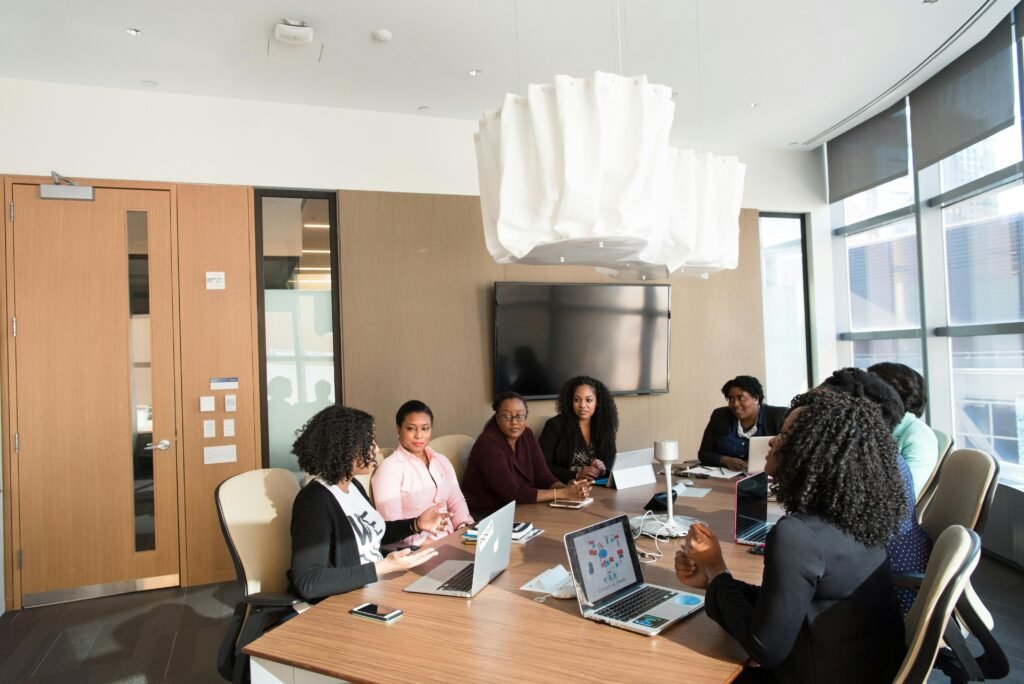
Introduction to Personal Growth for Women
In the fast-paced world we live in today, personal growth for women has become both an essential and deeply rewarding endeavor.
The journey of self-improvement isn’t just about achieving certain milestones; it’s about nurturing a holistic sense of well-being that includes mental, emotional, and physical aspects.
For many women, this journey requires perseverance, resilience, and a positive mindset to navigate the various challenges that life presents.
Personal growth involves continuous self-reflection and an ongoing commitment to becoming the best version of oneself.
It encourages women to set clear goals, develop new skills, and build habits that promote overall well-being.
One of the key elements in this journey is understanding that growth is not linear.
There will be ups and downs, but each experience contributes to a richer understanding of oneself.
Many women find that embracing a growth mindset is crucial for personal development.
This involves seeing challenges as opportunities to learn rather than as setbacks.
By adopting this perspective, women can cultivate resilience and assertiveness, empowering them to face life’s obstacles head-on.
Another vital aspect of personal growth is the importance of a supportive network.
Surrounding oneself with positive influences, whether it’s through friends, mentors, or like-minded communities, can provide invaluable encouragement and guidance.
These relationships offer a sense of belonging and can be a source of motivation when the going gets tough.
Incorporating mindfulness and meditation practices into daily routines can significantly benefit personal growth.
These practices help reduce stress and improve mental clarity, making it easier to maintain a positive and focused outlook.
Additionally, prioritizing health and well-being is fundamental.
Establishing healthy eating and exercise habits ensures a balance between mental, emotional, and physical health, which is essential for sustained personal growth.
Finally, personal growth is also about continuous learning.
Whether through formal education, new hobbies, or simply exploring new interests, staying curious and open to new experiences keeps the mind sharp and adaptable.
This continuous learning process enables women to expand their horizons and embrace new opportunities, leading to a more fulfilling and enriched life.
Setting Goals and Tracking Progress

Setting clear and achievable goals is a vital part of any personal growth journey.
Not only does it provide direction, but it also helps maintain focus and motivation.
Surprisingly, only 20% of people manage to keep themselves accountable to their goals, a sharp decrease from 77% the previous year.
To ensure accountability, many women turn to fitness apps.
In fact, nearly half of the respondents plan to use a fitness app to stick to their resolutions.
Journals are another effective tool for tracking progress, offering a space for reflection and celebrating small victories.
When setting goals, it’s essential to make them specific, measurable, attainable, relevant, and time-bound (SMART). This approach transforms vague aspirations into actionable steps.
For instance, instead of setting a goal to “get fit,” specify the target, like “run three times a week for 30 minutes.”
This clarity not only makes the goal more tangible but also makes it easier to track progress.
Regularly reviewing and adjusting goals is also key.
Life is dynamic, and flexibility in your goals allows for growth without feeling constrained.
Whether it’s weekly, monthly, or quarterly, taking time to reflect on what’s working and what isn’t can provide valuable insights and keep the journey aligned with your overall aspirations.
Technology can be a great ally in this process.
There are numerous apps available that can help you set, track, and achieve your goals.
These tools often include reminders, progress trackers, and even community features for added support and motivation. Interestingly, 33% of individuals use meditation apps as tools for accountability.
Sharing your goals with a trusted friend or mentor can also provide an extra layer of accountability.
Discussing your progress, challenges, and triumphs with someone else can offer new perspectives and encouragement, making the journey less solitary and more rewarding.
Mindfulness and Meditation Practices

Mindfulness and meditation are essential tools for fostering personal growth. Incorporating these practices into daily life can significantly reduce stress and enhance mental clarity.
There are various mindfulness techniques to explore, such as guided meditation, deep breathing exercises, and yoga.
Guided meditation involves listening to a trained instructor who leads you through a sequence of mental images and relaxation techniques.
This can be particularly helpful for those new to meditation, as it provides structure and guidance.
Deep breathing exercises, on the other hand, focus on the breath as an anchor to bring attention back to the present moment.
Techniques like diaphragmatic breathing or the 4-7-8 method can be practiced anywhere, making them versatile tools for stress management.
Yoga combines physical postures with mindfulness, offering both mental and physical benefits.
The practice encourages a state of relaxation and can be tailored to fit any skill level.
Whether through a local class or online tutorials, yoga can easily be integrated into a daily routine.
To maintain consistency in these practices, many turn to meditation apps.
These tools often offer a variety of guided sessions, reminders, and progress tracking features.
33% of individuals use meditation apps as tools for accountability.
Finding an app that resonates with you can make it easier to stick with a regular mindfulness practice.
Another approach to mindfulness is engaging in activities that require focused attention, such as gardening, painting, or even cooking.
These activities can serve as a form of active meditation, helping to ground you in the present moment while promoting a sense of calm and satisfaction.
It’s also helpful to set aside specific times each day for mindfulness and meditation.
Creating a designated space in your home can further enhance the practice, providing a tranquil environment free from distractions.
Remember, the goal is to cultivate a state of awareness and peace that can be carried into everyday life, aiding in overall personal growth and well-being.
Building a Supportive Network

Building a supportive network is crucial for personal growth.
Connecting with people who share your goals and values can provide a sense of belonging and motivation.
Friends and mentors play an essential role in offering guidance, encouragement, and constructive feedback, which can be invaluable during challenging times.
Women can find empowerment by joining groups or networks tailored specifically for them.
These communities can offer a safe space to share experiences, learn from one another, and collaborate on common goals.
Whether it’s a professional organization, a local community group, or an online forum, these networks can foster personal and professional development.
Mentorship is another vital component of a supportive network.
Finding a mentor who has navigated similar challenges can provide valuable insights and advice.
A mentor can help you see different perspectives, set realistic goals, and stay accountable.
Similarly, being a mentor to someone else can be equally rewarding, offering an opportunity to give back and reinforce your own growth.
Social media platforms can also be a powerful tool for building a supportive network.
By joining online groups, participating in discussions, and following inspirational figures, women can stay connected and inspired.
However, it’s important to curate your social media environment carefully to ensure it remains a positive and uplifting space.
Networking events, workshops, and seminars are excellent opportunities to meet like-minded individuals and expand your support network.
Attending these events can help you build relationships with others who are on a similar journey, providing mutual support and inspiration.
Many women find that these connections lead to lasting friendships and collaborative opportunities.
Family and close friends also form a critical part of your support network.
Sharing your goals and aspirations with them can create a sense of accountability and provide emotional support.
Open communication with loved ones can help you navigate the ups and downs of your personal growth journey.
Creating a supportive network requires effort and intentionality.
Actively seeking out and nurturing these relationships can provide a strong foundation for personal growth, offering encouragement, insights, and companionship along the way.
Developing a Growth Mindset

Adopting a growth mindset involves understanding that abilities and intelligence can be developed through dedication and hard work.
Unlike a fixed mindset, which views talents as static, a growth mindset embraces challenges as opportunities to learn.
Practicing positive self-talk and resilience can further reinforce this mindset.
Interestingly, 79% of women feel confident in their ability to achieve their goals, nearly matching the 82% of men who share this confidence.
This mindset encourages women to be more assertive and persistent in their personal growth journeys.
One of the fundamental aspects of a growth mindset is the belief that effort leads to improvement.
This encourages a proactive approach to challenges and setbacks.
When facing a difficult situation, rather than feeling defeated, you can ask yourself, “What can I learn from this?”
This shift in perspective fosters resilience and helps you view obstacles as temporary hurdles rather than insurmountable barriers.
A practical way to nurture a growth mindset is by setting process-oriented goals rather than just outcome-oriented ones.
For instance, instead of focusing solely on the end result, like landing a promotion, concentrate on the steps that will get you there, such as gaining new skills or seeking feedback.
This not only makes your objectives more manageable but also highlights the importance of learning and growth throughout the journey.
Surrounding yourself with positive influences can also bolster a growth mindset.
Engage with individuals who inspire you and support your aspirations.
This could be through mentors, friends, or even inspirational content.
Such connections can provide motivation and reinforce the belief that growth is possible.
Reflection plays a crucial role in developing a growth mindset.
Regularly take time to assess your experiences and the lessons learned from them.
This can be done through journaling or discussions with a trusted friend or mentor.
Reflecting on your progress helps you appreciate how far you’ve come and keeps you motivated to continue growing.
Lastly, be kind to yourself.
Personal growth is a continuous process, and it’s essential to celebrate small victories along the way.
Acknowledge your efforts and remind yourself that every step forward, no matter how small, is a part of your journey towards becoming the best version of yourself.
Continuous Learning and Skill Development

Continuous learning and skill development are essential components of personal growth.
By embracing new opportunities to learn, women can enhance both their personal and professional lives.
One effective way to continuously learn is by pursuing hobbies that challenge you and ignite your curiosity.
Whether it’s learning a new language, picking up an instrument, or diving into the world of coding, these activities can provide a sense of accomplishment and broaden your horizons.
Formal education is another avenue to consider.
Enrolling in courses or workshops can help you gain specialized knowledge and improve your skills in specific areas.
Many universities and online platforms offer a wide range of subjects, making it convenient to learn at your own pace.
Certifications and additional qualifications not only enhance your resume but also boost your confidence and expertise in your chosen field.
Reading is a simple yet powerful tool for continuous learning.
Books, articles, and research papers can offer new insights and perspectives, allowing you to stay updated on various topics.
Joining a book club or participating in discussion groups can make this habit even more enriching, as it provides an opportunity to exchange ideas and learn from others.
Networking with professionals and peers in your field can also contribute significantly to skill development.
Engaging in conversations, attending conferences, and participating in webinars can expose you to new trends and best practices.
These interactions often lead to collaborative projects, mentorship opportunities, and valuable advice that can aid your growth.
Practical experience is equally important.
Volunteering for projects, internships, or part-time jobs can provide hands-on experience that theoretical learning might not offer.
Real-world scenarios challenge you to apply your knowledge, adapt quickly, and solve problems, thereby honing your skills.
Staying adaptable and open to change is crucial for continuous learning.
The world is constantly evolving, and the ability to pivot and learn new skills can keep you relevant and competitive.
Embrace every opportunity to learn, and view each experience as a stepping stone toward becoming a more knowledgeable and skilled individual.
Prioritizing Health and Well-Being

Prioritizing health and well-being is essential for sustained personal growth.
Establishing healthy eating and exercise habits plays a crucial role in maintaining a balance between mental, emotional, and physical health.
Many women and men equally recognize the importance of improved mental health as a top priority, with 36% aiming for it as a resolution in 2024.
Additionally, 55% of respondents emphasize the equal importance of both physical and mental health.
Adopting a balanced diet rich in nutrients not only fuels the body but also supports cognitive function and emotional stability.
Incorporating a variety of fruits, vegetables, lean proteins, and whole grains can improve overall energy levels and mood.
Staying hydrated and practicing mindful eating are also simple yet effective ways to enhance your well-being.
Regular physical activity is equally important.
Whether it’s a daily walk, a yoga session, or a high-intensity workout, exercise has been shown to reduce stress, improve mood, and boost overall health.
Finding an activity that you enjoy increases the likelihood of making it a consistent part of your routine.
Sleep is another critical component of health and well-being.
Quality sleep helps repair and rejuvenate the body, aids in emotional regulation, and enhances cognitive function.
Establishing a regular sleep schedule and creating a restful sleep environment can significantly impact your overall well-being.
Mental health should not be overlooked. Practices such as mindfulness, meditation, and deep breathing exercises can help manage stress and anxiety, promoting a sense of calm and clarity.
Seeking professional help when needed is also a sign of strength and an important step in maintaining mental health.
By focusing on overall wellness, women can enhance their energy levels and maintain a positive outlook on life.
Conclusion and Encouragement

Personal growth is a journey that encompasses various facets of life, from setting clear goals to nurturing mental and physical well-being.
By embracing these habits, women can unlock their full potential and lead more fulfilling lives.
It’s important to remember that progress is often a series of small steps rather than giant leaps.
Celebrate each milestone, no matter how small, as it contributes to your overall development.
Surround yourself with positive influences and don’t hesitate to seek support when needed.
Your network can be a source of strength and encouragement, helping you stay motivated and resilient during challenging times.
Remember, you’re not alone on this journey; many women share similar goals and aspirations.
Mindfulness and self-reflection can provide clarity and peace, helping you stay grounded and focused.
Incorporate these practices into your daily routine to manage stress and maintain a positive outlook.
Adopting a growth mindset will enable you to view challenges as opportunities for learning and improvement.
Embrace each experience as a lesson that contributes to your personal development.
Prioritizing your health ensures that you have the energy and vitality to pursue your goals.
A balanced diet, regular exercise, and quality sleep are fundamental components of well-being.
Keep learning and remain open to new experiences. Continuous education and skill development can enrich your life and open doors to new opportunities.
As you embark on this journey of personal growth, take inspiration from the fact that 86% of people believe that their resolutions will have a lasting positive impact beyond 2024.
Let this statistic motivate you to stay committed and enthusiastic about your personal development.
Your journey is unique, and every step forward is a testament to your strength and determination.
